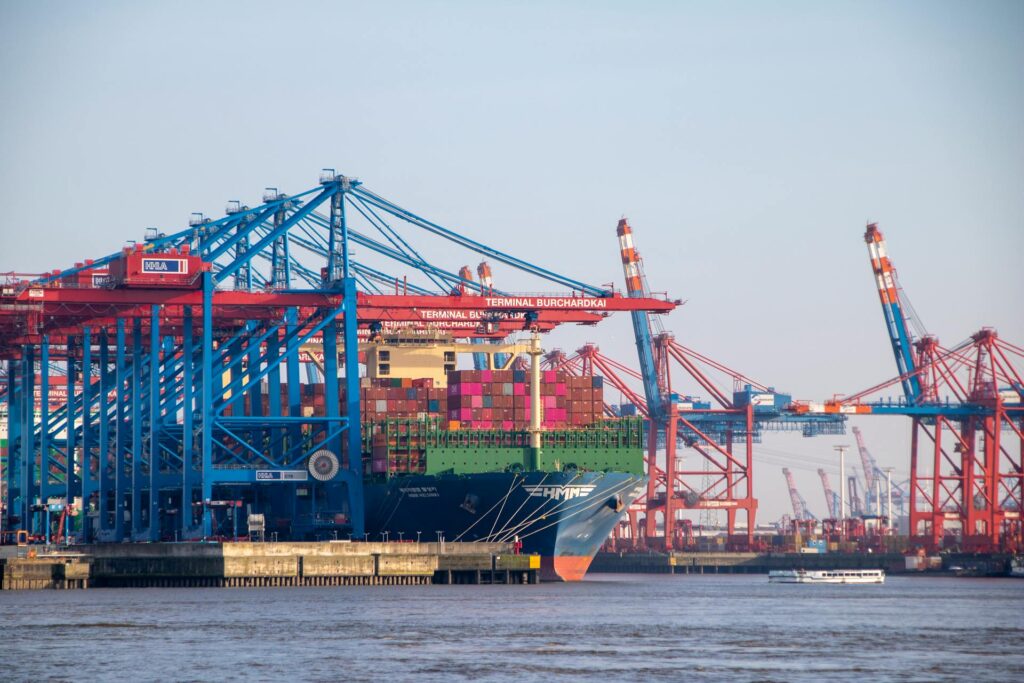
In the current backdrop of the vigorous development of international trade, battery products, as essential and crucial components of various electronic devices and energy storage systems, the demand for shipping batteries to Pakistan is also growing steadily. For the trade routes leading to Pakistan, the battery sea freight double clearance special line has attracted a great deal of attention.
It is capable of transporting a wide variety of battery types, such as lithium batteries, lead-acid batteries, and energy storage batteries, continuously supplying energy to the Pakistani market. However, different batteries have their own unique characteristics, and there are also many considerations regarding the difficulties in shipping batteries to Pakistan and the suitable transportation scale.
I. Analysis of the Characteristics of Common Batteries
Lithium Batteries
They have an extremely high energy density. Compared with traditional lead-acid batteries, lithium batteries can store a much larger amount of electrical energy under the same volume or weight conditions. This enables electronic devices equipped with lithium batteries to make significant progress towards being lightweight and portable. For example, smartphones, laptops, and other devices widely use lithium batteries for power supply, and their battery life has achieved a qualitative leap.
They have a rather long service life and a large number of charge-discharge cycles. Under normal usage conditions, they can reach several hundred or even thousands of cycles, greatly reducing the long-term usage cost.
The working voltage is not only high but also stable. The voltage of a single lithium battery is usually around 3.2 – 3.7V, which can stably supply power to high-power electrical appliances and effectively reduce the damage to the equipment caused by voltage fluctuations.
However, it should be noted that lithium batteries in the process of shipping batteries to Pakistan are extremely sensitive to high temperatures. Overheating is very likely to trigger thermal runaway, leading to dangerous situations such as fire and explosion. In a low-temperature environment, the battery performance will significantly decline, the battery life will be greatly reduced, and it may even be unable to be charged.
Lead-acid Batteries
They have a high level of technical maturity, a relatively simple manufacturing process, and a lower cost. They are “capable performers” in fields such as electric bicycles, low-speed electric vehicles, and backup power systems, and also enjoy a high popularity in the local Pakistani market.
They have good safety performance. The electrolyte is sulfuric acid solution, which is relatively stable. Even under abnormal working conditions such as overcharging and short-circuiting, the probability of a violent reaction is lower than that of lithium batteries, and they are less likely to explode and catch fire instantly. However, their energy density is low and they are heavy. To meet the same power demand, the volume and weight of lead-acid batteries far exceed those of lithium batteries, which largely limits their application in devices with strict requirements for portability.
Moreover, their charge-discharge efficiency is not high, the charging time is long, the driving range is relatively short, and the frequent charging requirements undoubtedly increase the inconvenience of use. This also poses certain challenges to the logistics arrangements during the shipping of batteries to Pakistan.
Energy Storage Batteries
They have a huge capacity and are carefully designed for large-scale energy storage. They can store a massive amount of electrical energy. For example, the energy storage systems supporting solar and wind power plants can store electrical energy during peak power generation periods, effectively suppressing power generation fluctuations and playing a key role in ensuring stable power supply in Pakistan.
They have the characteristic of flexible combination. According to different application scenarios, multiple battery modules are connected in series and parallel to form different voltage and capacity specifications, perfectly adapting to the diverse energy storage needs of industries, commerce, and households. However, they also have obvious disadvantages. The system is highly complex, and the requirements for battery management are almost stringent.
It is necessary to precisely monitor the voltage, temperature, and current of each battery unit to prevent individual battery failures from triggering a chain reaction. The initial investment cost is extremely high, covering the purchase costs of a series of supporting equipment such as battery packs, battery management systems, and heat dissipation devices. This puts forward higher requirements for cost control in the shipping of batteries to Pakistan.
II. Overcoming the Difficulties in Battery Sea Freight
Difficulties in Risk Control Caused by Battery Characteristics
The flammable characteristics of lithium batteries determine that during the sea freight process of shipping batteries to Pakistan, the temperature must be strictly controlled throughout the entire process, and moisture must be prevented to resolutely avoid short circuits. The temperature and humidity inside the sea freight container change greatly. Therefore, special packaging materials need to be used, and heat insulation and moisture-proof designs need to be carried out. For example, fireproof and heat-insulating corrugated cardboard should be selected, desiccants should be placed inside, and the battery electrodes must be insulated to avoid contact short circuits during transportation bumps.
Although lead-acid batteries are relatively stable, the sulfuric acid electrolyte is corrosive. During the shipping of batteries to Pakistan, the packaging must be leak-proof. Use acid-resistant plastic containers to encapsulate the batteries, and reinforce the outside to prevent collisions. Once there is a leak, it will not only corrode the container and ship facilities and damage the goods but also endanger the navigation safety, posing a serious threat to the safety of shipping batteries to Pakistan.
Energy storage batteries are large and complex. During transportation, it is necessary to ensure that the battery management system operates continuously for monitoring. A mobile power source can be equipped to supply power to it, maintaining the collection and regulation of key data to prevent the battery status from getting out of control due to power interruption during transportation and ensuring the smooth progress of shipping batteries to Pakistan.
Complicated Regulatory and Compliance Requirements
The International Maritime Organization (IMO) has strict regulations on the classification, packaging, and labeling of batteries for sea freight. Different batteries correspond to different dangerous goods categories. For example, most lithium batteries are classified as Class 9 miscellaneous dangerous goods. The packaging must pass the United Nations standard drop, stacking, airtightness, and other tests. Special danger labels should be pasted on the outer box, indicating key information such as the battery type and capacity for the crew to identify in case of an emergency during the shipping of batteries to Pakistan.
There are also quality and environmental protection standards for imported batteries in Pakistan. They need to meet local requirements such as electromagnetic compatibility and the limit of hazardous substances. Importers must prepare certification documents in advance, such as the CB certification of battery products and the permission of the Pakistan Standards and Quality Control Authority (PSQCA). Otherwise, the goods will face the risks of customs clearance obstacles and fines upon arrival at the port, seriously affecting the timeliness of shipping batteries to Pakistan.
III. Wisdom in Choosing the Transportation Solution
The battery sea freight double clearance special line for shipping batteries to Pakistan provides great convenience for the transportation of small and medium batches of batteries to Pakistan. It integrates the customs declaration and customs clearance processes and solves the customs formalities in one stop. For the less-than-container-load transportation of lithium batteries, lead-acid batteries, and energy storage batteries, it can accurately connect with the local distribution in Pakistan, effectively reducing the logistics connection cost and time and ensuring that the batteries can be delivered to the Pakistani market efficiently.
However, when it comes to the transportation of large batches of batteries, such as the components of large-scale energy storage power station projects being shipped to Pakistan, the hazardous chemicals special line is more reliable. This type of special line is equipped with professional hazardous chemicals transportation ships or containers, and the crew has received emergency training for hazardous chemicals. The shipping route is planned to cleverly avoid densely populated and sensitive sea areas, and the entire transportation process is monitored in real-time by satellite.
It reduces the risks of large-scale shipping of batteries to Pakistan from the source, ensuring that each batch of batteries can reach Pakistan safely and on time, injecting a continuous stream of power into the steady development of the battery trade between China and Pakistan and promoting the continuous progress of shipping batteries to Pakistan to a new level. In short, by deeply understanding the characteristics of batteries, accurately grasping the difficulties in transportation, and wisely choosing the transportation special line, one can ride the waves in the tide of the battery trade between China and Pakistan and achieve the efficiency and safety of shipping batteries to Pakistan.





